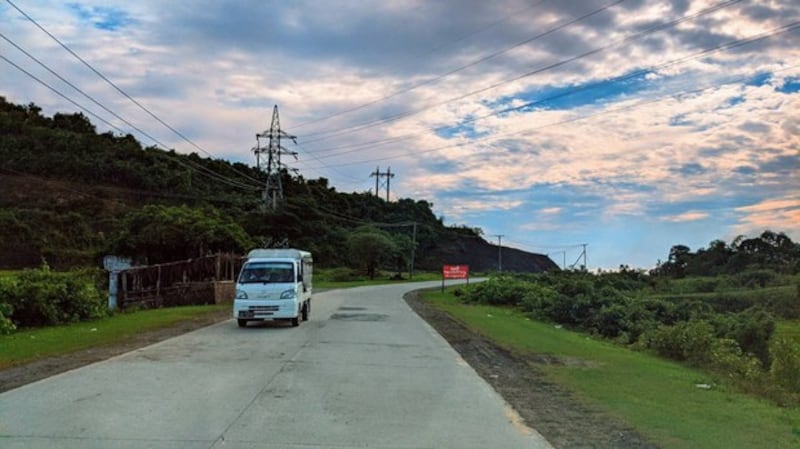Junta troops are still banning the transport of humanitarian aid including shipments of medicines and fuel in western Myanmar’s Rakhine state a month after a local cease-fire went into force, according to sources in the region.
Brokered by Japan after four months of intense fighting in the Rakhine, the cease-fire is the latest halt to hostilities between junta troops and the rebel Arakan Army, or AA, that have devastated the civilian population of the state and of Paletwa township in neighboring Chin.
Although roads have been reopened across Rakhine, junta forces continue to block the delivery of essential goods to residents of the state, sources in Rakhine say.
“The junta have reopened the Ah Ngu Maw-Maungdaw road, which they had blocked before,” a resident of Rakhine’s Rathedaung township told RFA, speaking on condition of anonymity for security reasons.
“They have reopened the Sittwe-Yangon road too, and have reopened several waterways. But for now they are still restricting the transport of some goods,” the source said.
Goods barred from transport include medicines and medical equipment, fuel, diesel oil, and iron bars and cement used in construction, the source said. “It is difficult now even to transport food,” he added.
Humanitarian aid sent by international organizations for refugees from eight townships in northern Rakhine is also being blocked by junta military forces, refugees told RFA.
Civilian arrests continue
Junta troops also continue to arrest Rakhine civilians for suspected ties to the Arakan Army, with over 100 residents taken into custody during the last month, sources say.
Hla Aye San, wife of the owner of a rice mill in Kyauktaw township’s Thanzin village, said her husband had been prosecuted for sedition under Section 131 of Myanmar law and had been moved to another prison after his trial.
“I haven’t heard anything about him since then,” she said. “We really want all of those detained for their alleged connections to the Arakan Army to be released during this cease-fire, with some agreement reached between the two armies,” she added.

“Since the cease-fire was announced on humanitarian grounds, both sides should release detained civilians, and the bans on transport should be lifted,” said Pe Than, a veteran politician and former member of the Myanmar parliament’s lower house.
“From a political standpoint, the detainees’ release could build mutual trust and lead to a long-term or even permanent cease-fire,” he added. “The arrests should not continue.”
‘I am worried for my life’
Also speaking to RFA, a ward administrator in Rakhine’s Ponnagyun township said that more than 100 village leaders have asked during the last month for permission to resign their posts.
“The village chiefs are appointed by the junta, but they cannot protect their villages. When military forces entered the villages, we had to flee our homes,” the source said, asking to remain anonymous in order to speak freely.
At the same time, the rebel United League of Arakan and Arakan Army view the village leaders with suspicion because they were appointed by the junta, the ward administrator said.
“I have now applied to resign because neither side has reconciled, and I am worried for my life,” he said.
At least 45 civilians have been killed and more than 106 injured by artillery shells, bombs, landmines and other military explosives left behind after four months of recent fighting in Rakhine, according to figures compiled by RFA. Local residents now fear more may be killed if fighting resumes, sources said.
Translated by Myo Min Aung for RFA Burmese. Written in English by Richard Finney. Edited by Malcolm Foster.
